Showing 33–45 of 45 results
-
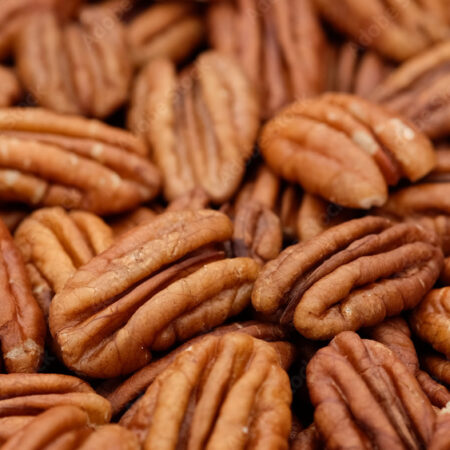
Pecan Nuts
Pecans are nuts with a rich, buttery flavour and a distinctive oval shape. Pecans come from the hickory tree species Carya illinoinensis. The tree is native to North America, and pecans are a popular nut in southern regions of the United States. Pecans have a rich, buttery flavour with a slightly sweet and nutty taste. They have a tender and crunchy texture, making them a popular choice for both sweet and savoury dishes. Pecans are nutrient-dense and provide healthy monounsaturated fats, protein, dietary fibre, vitamins (such as vitamin E and B-complex vitamins), and minerals (including manganese and copper).
-
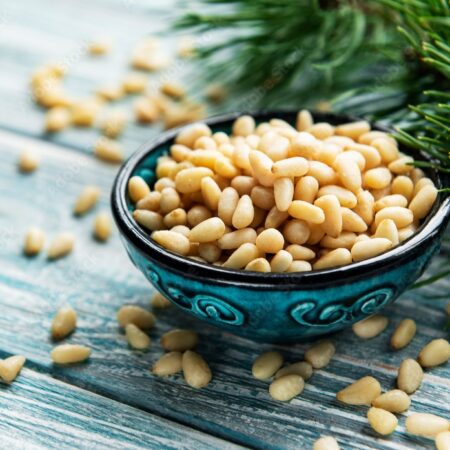
Pine Nuts
Pine nuts are the edible seeds of pine trees and are known for their delicate flavour and buttery texture. Pine nuts come from various species of pine trees, and different varieties may produce slightly different-sized and flavoured nuts. The most commonly harvested pine nut species include the stone pine (Pinus pinea), Siberian pine (Pinus sibirica), and Korean pine (Pinus koraiensis).Pine nuts have a mild, buttery flavour with a slightly sweet and resinous undertone. They have a soft, creamy texture, making them a popular addition to both sweet and savoury ry dishes. Pine nuts are a good source of healthy monounsaturated fats, protein, and essential nutrients such as magnesium, phosphorus, and zinc. They are also rich in antioxidants.
-
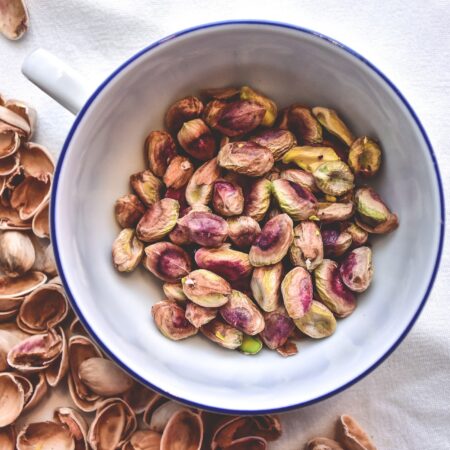
Pistachios
Pistachios are nuts derived from the Pistacia vera tree. Pistachios are nutrient-rich nuts containing protein, healthy fats, dietary fibre, vitamins (such as B vitamins and vitamin E), and minerals (including phosphorus, potassium, and magnesium). Pistachios are known for promoting heart health by helping lower bad cholesterol levels and supporting overall cardiovascular well-being. They contain antioxidants like lutein and zeaxanthin, which contribute to eye health, and gamma-tocopherol, a form of vitamin E. Despite being calorie-dense, pistachios are often considered a weight-friendly snack. The act of shelling them may slow down consumption, and their protein and fibre content promotes a feeling of fullness.
-
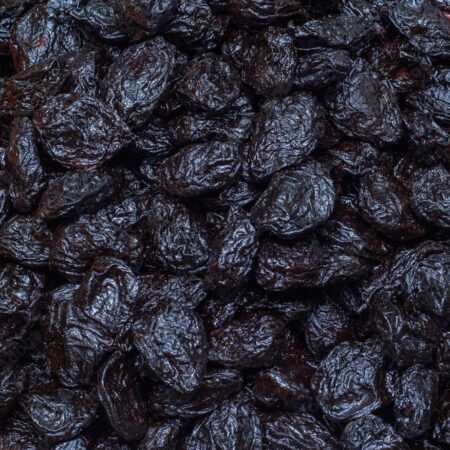
Prunes
Prunes are dried plums, specifically the European variety of plums, and are known for their sweet taste and wrinkled appearance. Prunes are made by drying plums, either through sun drying or dehydration. The drying process removes the water content, concentrating the natural sugars in the fruit.Prunes have a sweet and slightly tart flavour, with a dense and chewy texture. They are often described as having a rich, concentrated plum taste.Prunes are rich in essential nutrients, including dietary fiber, potassium, vitamins (such as vitamin K), and antioxidants. They are well-known for their potential digestive benefits due to their high fiber content.Prunes are often associated with promoting digestive regularity. The fiber in prunes, combined with natural sugars and sorbitol, contributes to a laxative effect, helping alleviate constipation.Prunes contain vitamin K, which plays a role in bone health and blood clotting. They also provide potassium, which is beneficial for maintaining healthy blood pressure.
-
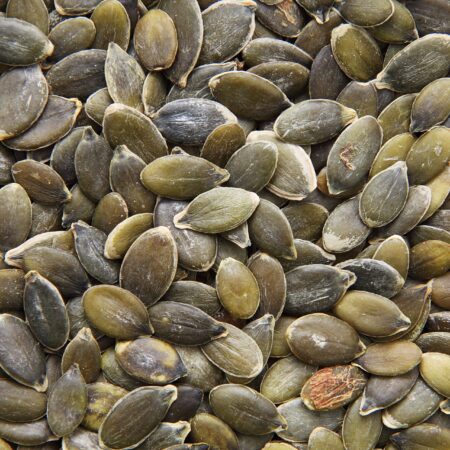
Pumpkin seeds
Pumpkin seeds, also known as pepitas, are the edible seeds found inside a pumpkin. Pumpkin seeds are flat, oval-shaped seeds with a white outer shell. The inner kernel, known as the pepita, is green and has a mild, nutty flavour. Pumpkin seeds are a nutritional powerhouse, containing protein, healthy fats, fibre, vitamins (such as vitamin K and vitamin E), and minerals (including magnesium, zinc, and iron). Pumpkin seeds offer various health benefits, including supporting heart health, promoting better sleep due to their tryptophan content, and contributing to prostate health in men.
-
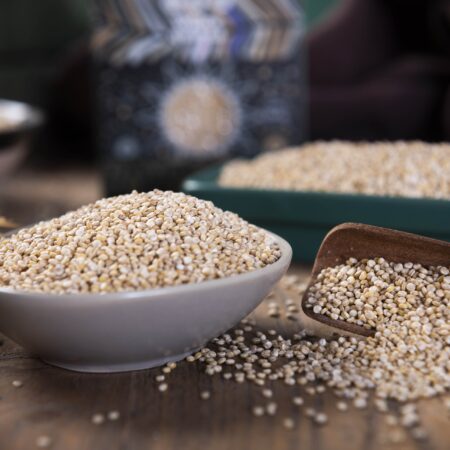
Quinoa Seeds
Quinoa (pronounced keen-wah) is a nutrient-rich pseudocereal that is often treated as a grain in culinary contextsQuinoa is highly nutritious, containing a balanced profile of essential nutrients. It is a good source of protein, dietary fiber, vitamins (especially B vitamins), and minerals (such as iron, magnesium, and phosphorus).Quinoa is unique among plant-based foods as it provides all nine essential amino acids, making it a complete protein. This makes it an excellent protein source for vegetarian and vegan diets.Quinoa is naturally gluten-free, making it suitable for individuals with gluten sensitivities or celiac disease.Quinoa has been cultivated for thousands of years in the Andean region of South America and was considered a sacred crop by the Inca civilization.
-
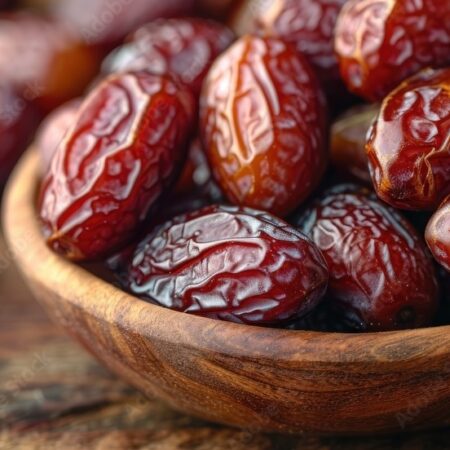
Safawi Dates
“Safawi Dates” refer to a specific variety of dates that are known for their unique characteristics. Safawi Dates are primarily cultivated in the Kingdom of Saudi Arabia, especially in the Al-Madina region. Safawi Dates are typically dark brown to black, and they have a long, cylindrical shape with a wrinkled or semi-dry texture. Dates, including Safawi Dates, are naturally high in natural sugars, primarily glucose, fructose, and sucrose. They also provide essential minerals such as potassium, magnesium, and iron. Safawi Dates are often consumed for their potential health benefits, including providing a quick energy boost, aiding digestion due to their fibre content, and contributing to overall well-being.
-
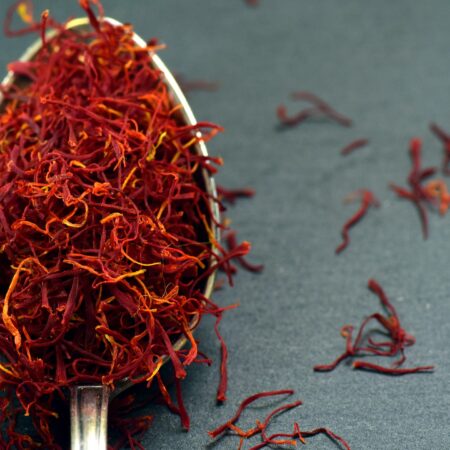
Saffron
Saffron is a highly prized spice derived from the flower of Crocus sativus, commonly known as the saffron crocus. Saffron is cultivated mainly for its thread-like stigma, which is hand-harvested from the purple saffron crocus flower. Each flower produces only a few threads. Saffron imparts a rich golden-yellow colour and a distinctive, aromatic flavour to dishes. It is known for its slightly bitter taste and floral notes. Saffron contains several bioactive compounds with potential health benefits. It’s known for its antioxidant properties and has been traditionally used in some cultures for its perceived medicinal properties.
-
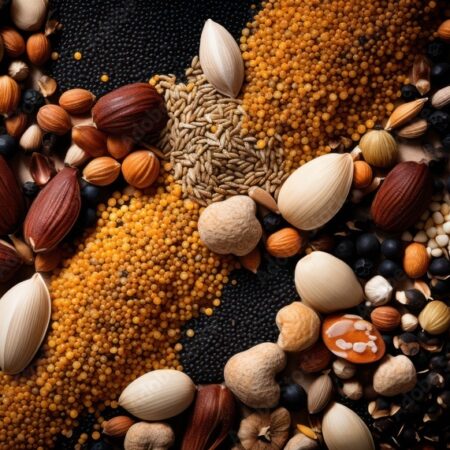
Seven Seeds
Seven Seeds” typically refers to a blend of seven different types of seeds that are often combined for their nutritional benefits. The specific seeds included in the blend may vary, but commonly used seeds in such blends include:
1.Chia Seeds: Rich in omega-3 fatty acids, fiber, and antioxidants.
2.Flax Seeds: Packed with omega-3 fatty acids, fiber, and lignans.
3.Sunflower Seeds: Provide healthy fats, protein, and various vitamins and minerals.
4.Pumpkin Seeds: A good source of protein, healthy fats, and minerals like zinc and magnesium.
5.Sesame Seeds: Contain healthy fats, protein, and minerals like copper and manganese.
6.Hemp Seeds: Rich in omega-3 and omega-6 fatty acids, protein, and minerals.
7. Poppy Seeds: Provide dietary fiber, B vitamins, and minerals like calcium and magnesium.
-

Sprinkles
Sprinkles, also known as jimmies or hundreds and thousands, are colourful, tiny confectionery decorations used to add a decorative touch to various baked goods and desserts. Sprinkles are made from sugar, corn syrup, edible waxes, and food colouring. They come in a variety of shapes, including spherical, rod-like (jimmies), and tiny flakes. Sprinkles come in a rainbow of colours, allowing for creative and vibrant decorations. They are available in different shapes, such as round, star-shaped, heart-shaped, and more.
-
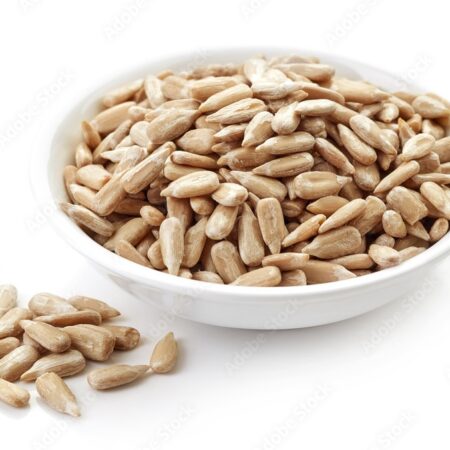
Sunflower seeds
Sunflower seeds are the edible seeds harvested from the sunflower (Helianthus annuus) plant. Sunflower seeds are enclosed within the large head of the sunflower, and each seed is found at the centre of a disk-like structure called the sunflower head. Sunflower seeds are a nutrient-dense snack, containing healthy fats, protein, fibre, vitamins (especially vitamin E), and minerals (such as magnesium, phosphorus, and selenium). Sunflower seeds offer several health benefits, including supporting heart health, providing antioxidant protection, and contributing to bone health due to their magnesium content. Sunflower seeds are a particularly good source of vitamin E, an antioxidant that helps protect cells from damage.
-
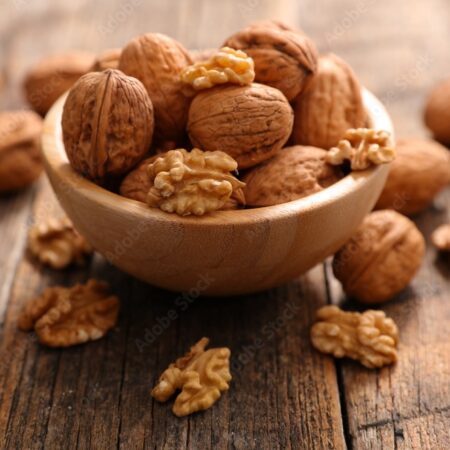
Walnuts
Walnuts are nutrient-dense nuts that come from the Juglans genus tree. Walnuts are packed with nutrients, including omega-3 fatty acids, antioxidants, protein, fibre, vitamins (such as vitamin E and B vitamins), and minerals (including magnesium and potassium). Walnuts are often considered a brain-boosting food due to their high content of omega-3 fatty acids, which are essential for cognitive function. Regular consumption of walnuts is associated with heart health benefits. The omega-3 fatty acids and antioxidants may help reduce inflammation and improve cholesterol levels. The antioxidants and polyphenols in walnuts contribute to their anti-inflammatory properties, potentially benefiting overall health.
-
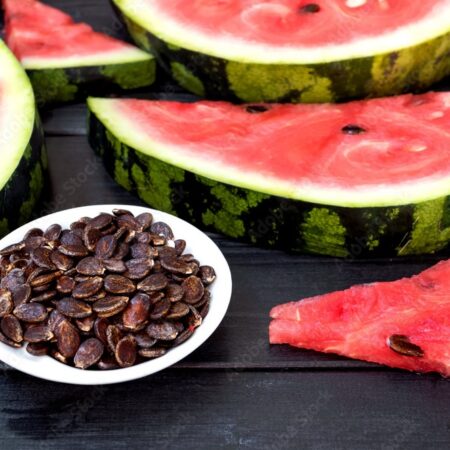
Watermelon seeds
Watermelon seeds are the small, edible seeds found in the centre of watermelon fruit. Watermelon seeds are a nutritious snack, containing protein, healthy fats, fibre, vitamins (such as B vitamins), and minerals (including iron, magnesium, and zinc). Watermelon seeds offer health benefits, including protein for muscle health, fibre for digestive health, and essential minerals that contribute to overall well-being. Watermelon seeds contain antioxidants that help protect the body from oxidative stress and inflammation.

